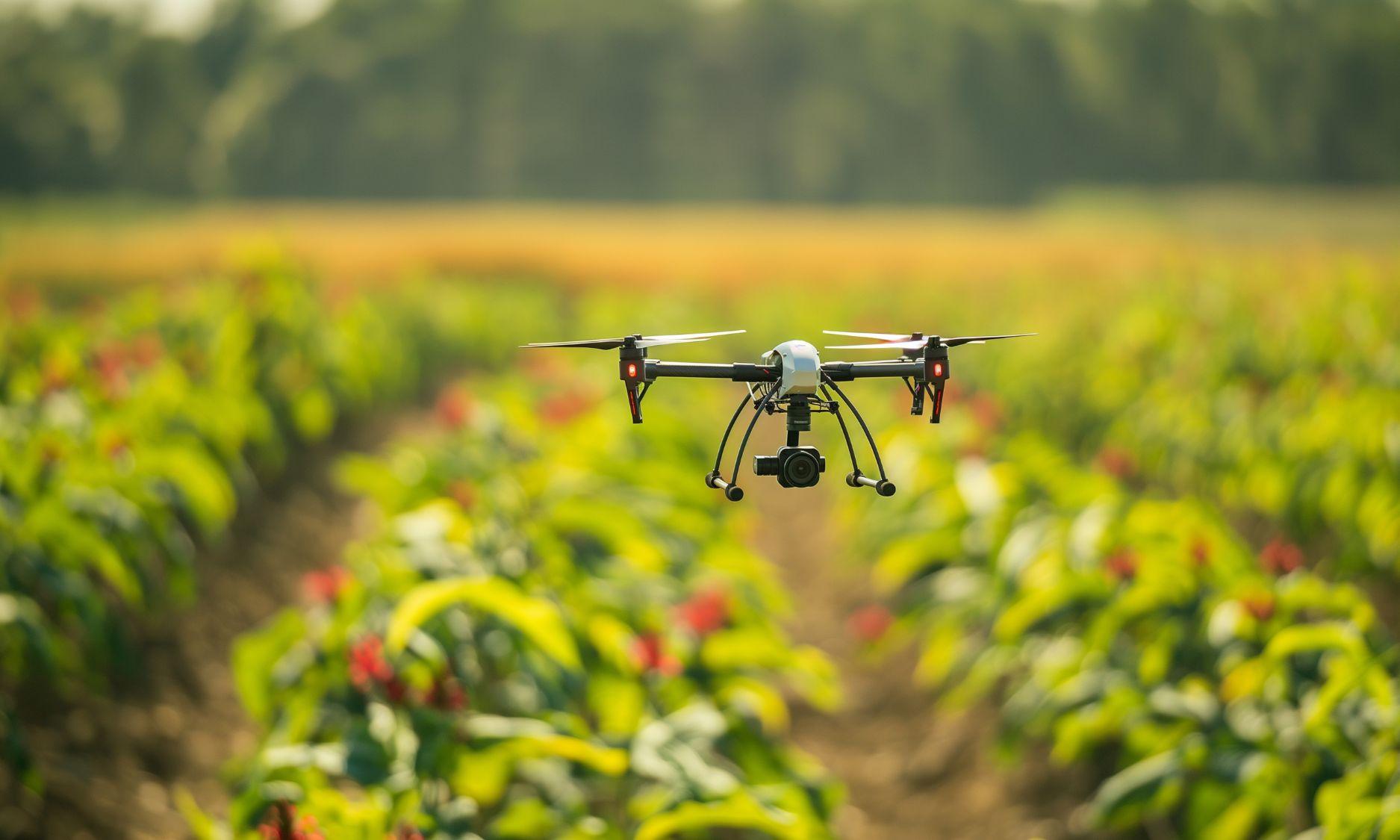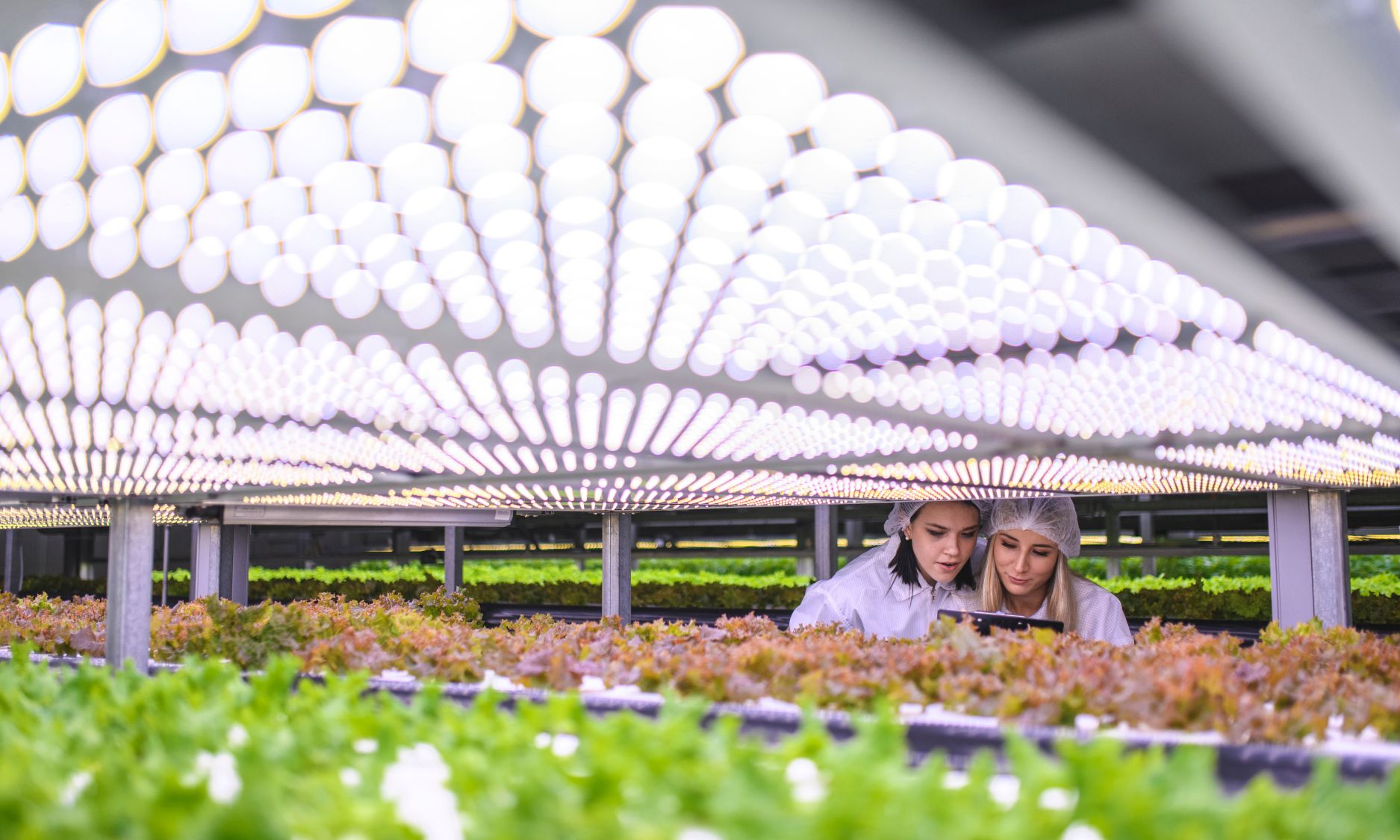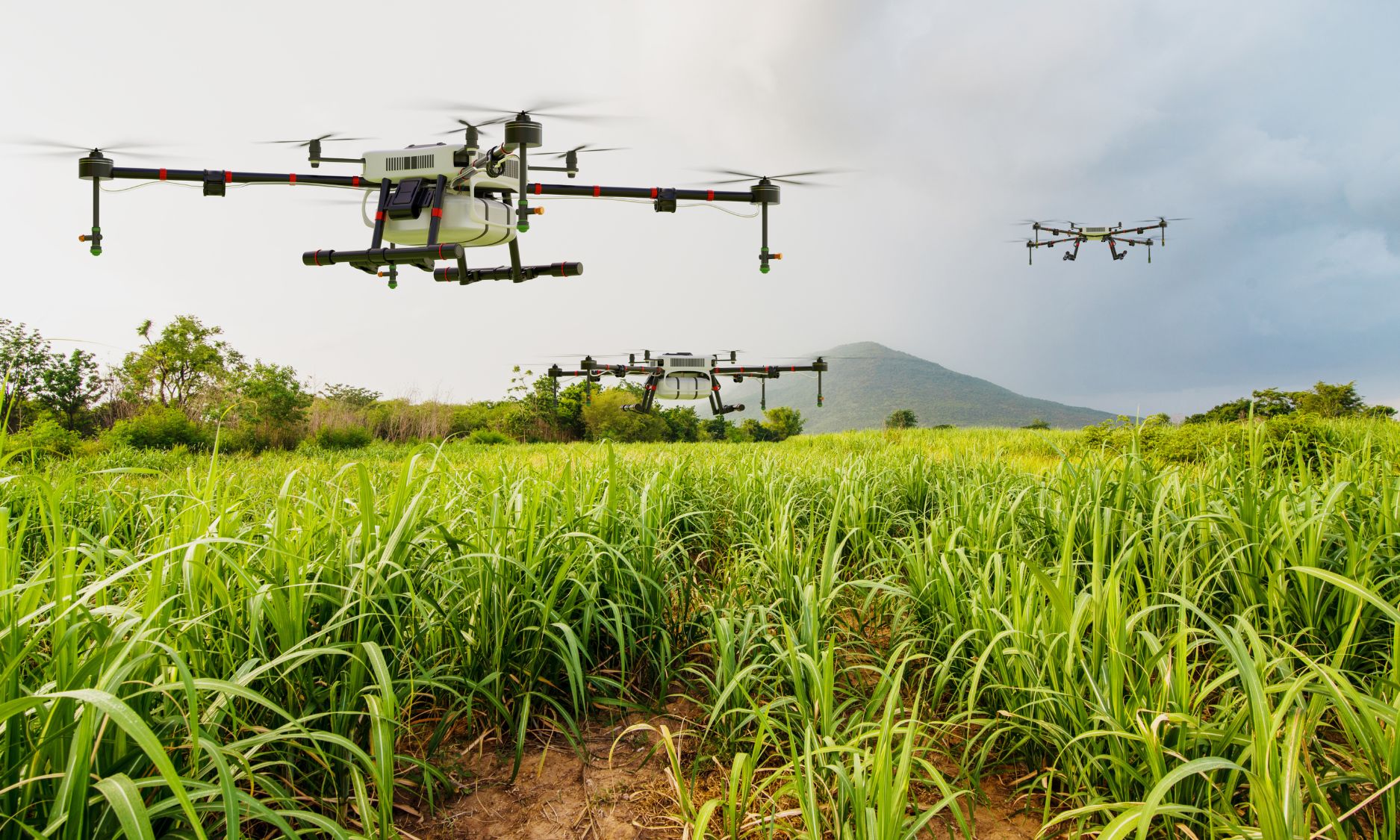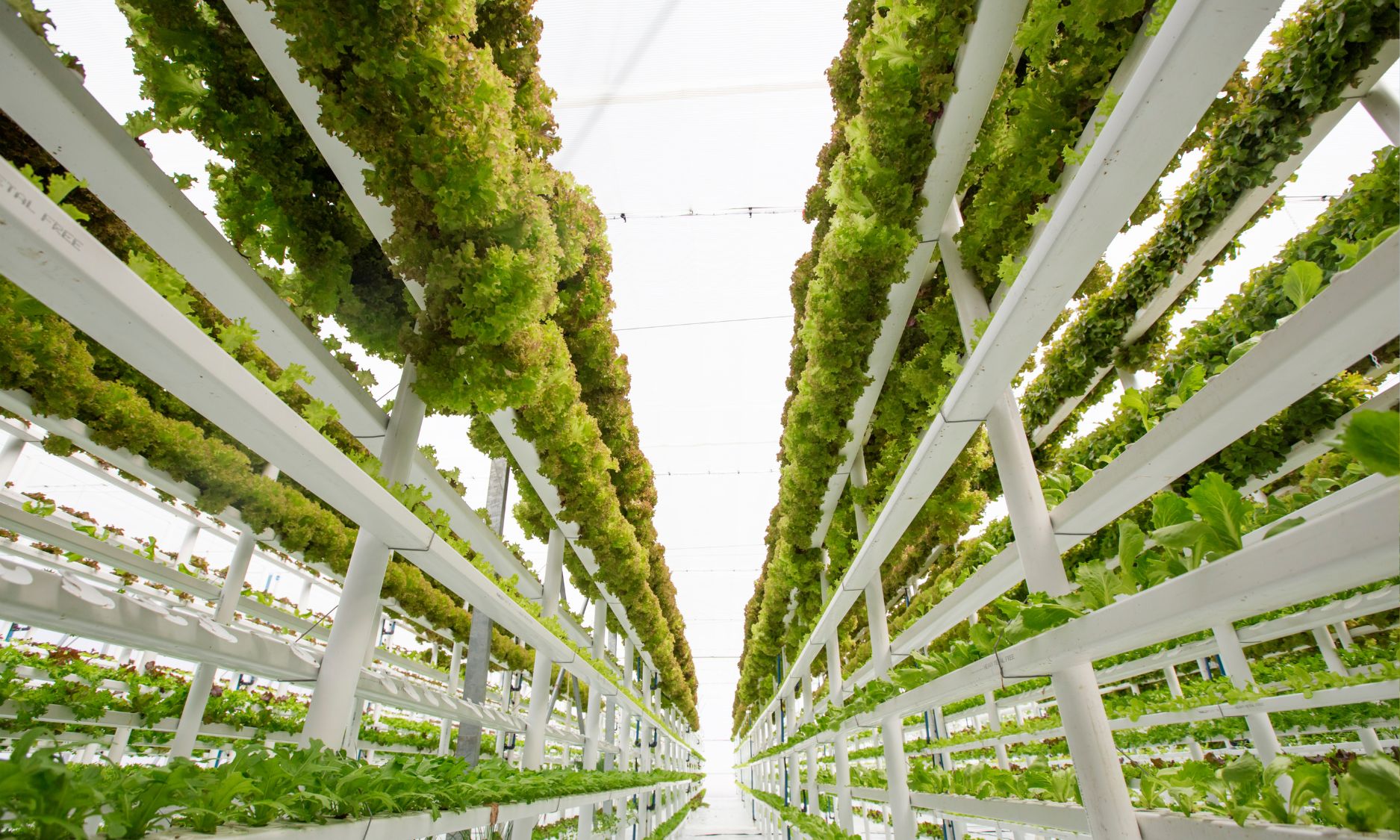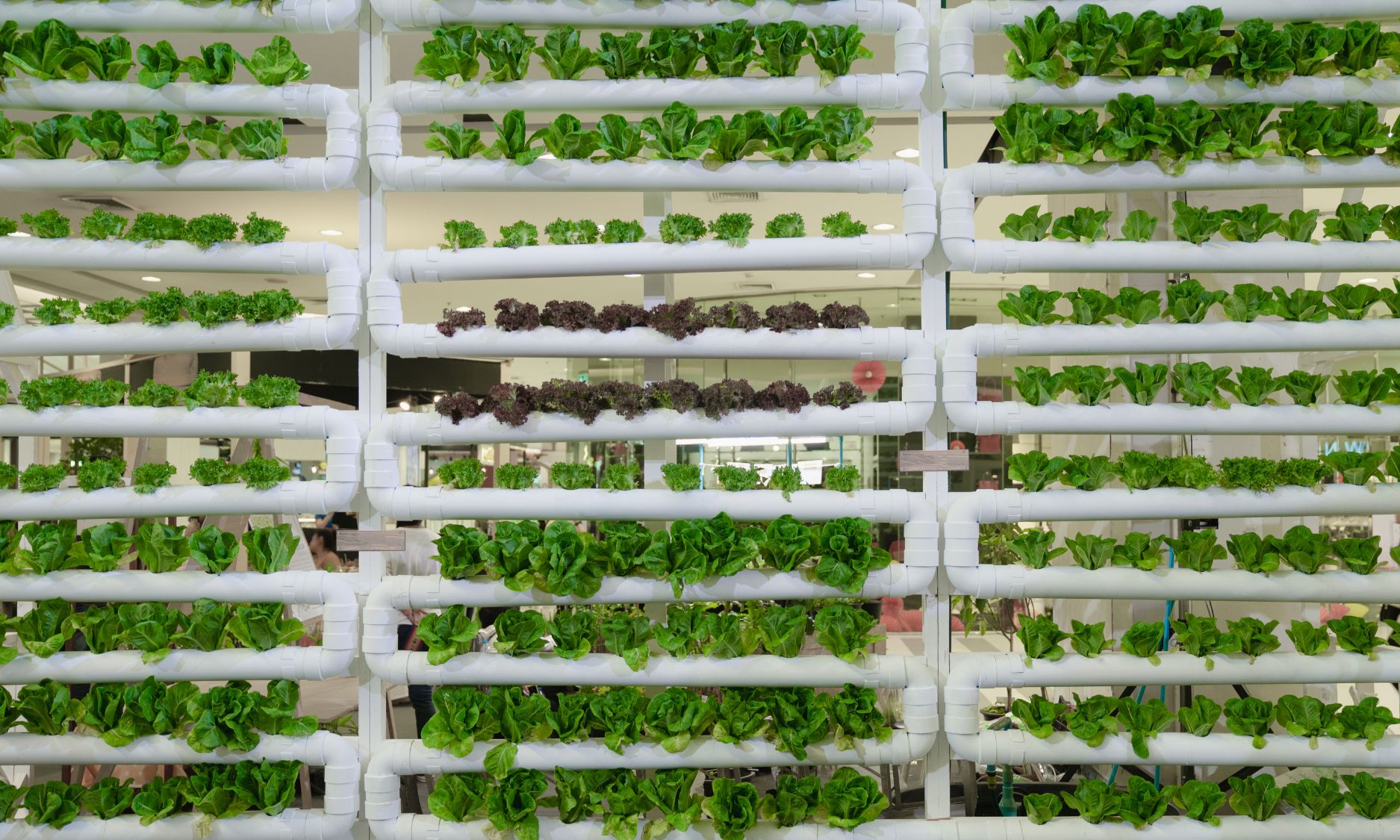Agritech in the UAE is revolutionising the nation’s agricultural landscape by integrating advanced technologies like automation, data analytics, and smart irrigation. This sector is pivotal in enhancing farming practices’ efficiency, sustainability, and productivity, particularly in a region challenged by scarce fertile land and harsh climatic conditions.
With substantial investments and government initiatives, Agritech aims to boost local food production and reduce the nation’s reliance on imports. As the UAE aligns itself with global Agritech trends, it’s making significant strides in ensuring food security and promoting sustainable agricultural practices.
Agritech in the UAE
Definition and Scope of Agritech
Agritech, a term that signifies the blend of technology and agriculture, is quickly evolving in the UAE. This sector is revolutionising farming practices and agribusinesses in the region by incorporating technologies like automation, data analysis, and information monitoring.
These innovations aim to boost agricultural practices’ efficiency, sustainability, and productivity. In a region where fertile land is scarce, and the climate is harsh, Agritech stands as a beacon of progress. It provides solutions to increase yields, cut costs, and tackle the pressing issues of food security and climate change.
Agritech plays a significant role in the UAE as it is key in transforming the nation’s agricultural sector and reducing its reliance on food imports. By integrating advanced technologies such as automated farming equipment, smart irrigation sensors, and data analytics for crop production, Agritech enables the UAE to optimise resource use and minimise environmental impact.
Key Drivers for Agritech Adoption
The Agritech market in the UAE is on a strong growth trajectory.
Projections show an expansion from USD 3.17 billion in 2023 to USD 4.09 billion by 2029, reflecting a compound annual growth rate (CAGR) of 4.30%.
This growth is a testament to the nation’s intensified efforts to strengthen food security and reduce its dependency on food imports.
The National Food Security Policy highlights this commitment by setting targets to increase local production by 30-40% within the next decade.
The UAE invests heavily in this sector, recognising the potential of hydroponics and vertical farming, which maximise space and yield in controlled environments. The Abu Dhabi Investment Office (ADIO) has established a $200 million fund to invest in a range of early-stage Agritech companies over the coming years.
The government is also making significant investments in Agritech companies with the aim of reducing imports through vertical farming, hydroponics, and patented technology that helps track harvests.
Comparison with Global Agritech Trends
The Agritech sector in the Middle East and North Africa (MENA) region saw a compound annual growth rate of 122% between 2018 and 2021.
Funding in the sector has been rapidly increasing since 2020. This growth aligns with global trends, where major advancements in Artificial Intelligence (AI) and expanded computing capacity have paved the way for Agritech to help ensure resilient food systems.
The UAE is leveraging Agritech to tackle the dual challenges of food security and sustainability. It’s joining forces with the US to spearhead initiatives dedicated to more eco-friendly food cultivation and consumption practices. The $500 million COP28 Action Agenda on Regenerative Landscapes underscores the UAE’s commitment to reducing farming’s ecological impact. It focuses on conserving ecosystems, improving soil health, and safeguarding water resources.
However, the Agritech sector still faces barriers to access. These include insufficient access to digital technology and data, a lack of financial resources, and few policies that promote Agritech innovation. Despite these challenges, the innovative agriculture approaches taking place across the region have paved the way for major advances in ensuring food security. Agritech is helping reduce imports and enable more sustainable water usage.
Government Initiatives and Support
Policy Framework and Incentives
The UAE is actively fostering the Agritech sector through various government initiatives and policies to enhance food security and diversify food sources via technology. The National Food Security Strategy exemplifies this commitment, setting a goal for the UAE to lead in innovation-driven food security.
The Food Tech Valley initiative is designed to create an environment that promotes innovation, research, and development in Agritech.
Funding and Investment in Agritech Startups
Financial support is a cornerstone of the UAE’s strategy to strengthen the Agritech sector. The Emirates Development Bank (EDB) has launched innovative financing solutions, including an AgriTech Loans Program. This program supports farms, local growers, and food suppliers adopting new technologies to improve efficiency and productivity. It offers project financing, capital expenditure and working capital financing, and medium-term loans with competitive rates and a ten-year tenor.
The UAE has also emerged as a regional hub for indoor vertical farms, attracting significant investment from leading companies.
The vertical farming market in the Middle East and Africa is projected to reach nearly USD 5 billion by 2029, driven by the scarcity of arable land and water resources.
Technologies like hydroponics, aeroponics, and aquaponics are increasingly being adopted to reduce water usage and enable year-round production.
Collaboration with International Agritech Leaders
Recognising the importance of global collaboration, the UAE is actively seeking partnerships with international entities to share knowledge, technologies, and innovations. Platforms like AgriFundX Dubai play a key role in showcasing innovation, facilitating investment, and fostering global partnerships in Agritech.
These collaborations are essential for addressing global food security challenges and encourage cooperation between stakeholders from various sectors and regions.
Future Plans and Targets
Several trends are expected to shape the future of Agritech in the UAE, including sustainability and climate-smart practices, digitalisation, and data analytics. The use of big data, AI, and machine learning is set to become more prevalent, enabling precision agriculture that maximises yield and efficiency.
The EDB aims to approve 30 billion in financing support to 13,500 companies in priority sectors, including food security, by 2026.
This commitment highlights the UAE’s ambition to solidify its position as a leader in the global Agritech landscape.
Major Agritech Innovations in the UAE
The UAE’s Agritech industry has been making significant progress, largely due to the country’s commitment to enhancing food security. The UAE is also keen on harnessing technological advancements to refine agricultural practices, even in its challenging desert environment.
Smart Farming Technologies
Smart farming is a contemporary concept in agricultural management. It uses technology to improve the quantity and quality of agricultural products. Today’s farmers, like you, have access to a plethora of technologies, including GPS, soil scanning, data management, and the Internet of Things.
These technologies are primarily funded through various research policies and supported by local, regional, and national development programmes. The Green Farm Dubai, for instance, is the first in the world to use iFarm Multigreens technology, which allows for the cultivation of a variety of crops in the same space.
The farm is managed by iFarm Growtune, an IT-driven farm management software that optimises yields and enhances farm productivity.
Hydroponics and Aquaponics Systems
Hydroponics, a method of growing plants without soil, is gaining popularity in the UAE. This method involves growing plants in a nutrient-rich solution and has several advantages over traditional farming methods.
Hydroponics recycles water, uses less land, requires fewer pesticides, and produces higher yields and better-quality crops. The increasing demand for fresh, high-quality produce is driving the growth of hydroponics in the UAE. The Ebb & Flow system, used in the Green Farm Dubai’s Vertical Farm, enhances oxygen supply to the plant roots, resulting in more efficient nutrition.
This new hydroponic system and higher planting density have led to record yields per square metre of growing area.
Usage of AI and Robotics in Agriculture
The adaptability of technology in Dubai is revolutionising the agricultural sector. Satellite imagery and climate-related data analysis are prime examples. By using satellite technology and harnessing climate data, you, as a farmer, can gain valuable insights.
These insights can help you understand factors like drought, pests, and diseases, enabling more effective crop monitoring and farm management practices.
Impact on Crop Yield and Sustainability
The UAE’s commitment to Agritech is significantly impacting crop yield and sustainability.
The National Food Security Strategy aims to increase food production by 30-40% over the next decade and set an ambitious target of producing 50% of the food consumed locally by 2051.
Agritech innovations like hydroponics, vertical farming, and the use of alternative resources like solar power for agriculture support this initiative. The study indicates that digital technology moderates the relationship between innovative and sustainable urban farming systems.
Resource efficiency and conservation practices were positively associated with sustainable urban farming.
As the industry evolves, the UAE’s agriculture is expected to grow at a compound annual growth rate (CAGR) of 3.5% from 2022 to 2027.
Challenges and Solutions in Adoption
Climatic and Environmental Barriers
The UAE’s efforts to boost food security and integrate tech innovations in agriculture face significant challenges due to its arid environment. To address these, climate-smart agricultural methods are being employed to counteract the impacts of climate change on food production.
The National Food Security Strategy aims to reduce food waste by 50% by 2030, supported by the Ne’ma initiative, which promotes responsible consumption.
The Integrated Desert Farming Innovation Platform plans to invest $20 million by 2025 to foster sustainable employment and ensure food, nutrition, and water security in the Arabian Peninsula and MENA region.
Technological and Infrastructure Challenges
High costs of implementing and maintaining advanced Agritech systems can be a barrier for smaller farms. Additionally, the lack of standardisation across various systems complicates data transfer and product comparison.
Over-reliance on technology could create vulnerabilities in the food production system without adequate backup and recovery mechanisms.
Despite these challenges, the UAE is focusing on technologies like solar power for agriculture, reducing food waste and greenhouse gas emissions, and vertical farming.
Skill Gaps and Educational Initiatives
The Agritech market in the UAE is a dynamic blend of traditional and modern farming techniques driven by progressive government strategies.
A collaboration between Khalifa University of Science and Technology and Silal aims to transform the agricultural sector through robotics and automation. The Centre of Excellence in Agri-Robotics and Automation is set to become a key player in developing automated machinery and robotics technologies.
Satellite imagery and mapping provide farmers with detailed insights into their crops and land.
Examples of Successful Implementation
Despite its challenging environment, the UAE has successfully cultivated various crops, including dates, tomatoes, cucumbers, and various fruits.
The introduction of commercial greenhouses and indoor farms has increased the production of vegetables like cabbage and broccoli. Government support through subsidies and technical assistance has been crucial in advancing technologies to address water scarcity and limited arable land.
Partnerships between the government and private sector are enhancing the visibility of locally grown produce. The UAE’s commitment to Agritech is evident in its growing use of advanced agricultural technologies, such as hydroponics and vertical farming.
Another innovative approach is precision farming, which leverages big data to improve crop yields and resource efficiency.
The Future of Agritech in the UAE
Predictions for Technological Advancements
The Agritech sector in the UAE is swiftly transforming. The nation’s commitment to this field is clear in its growing adoption of advanced agricultural technologies. The sector is projected to grow significantly by 2029, reflecting a strong CAGR.
This growth is fuelled by the UAE’s investment in cutting-edge technologies and practices, which is resulting in technology-driven agriculture becoming the norm.
The UAE government has been proactive in adopting innovative technologies like vertical farming and aquaculture. The development of indoor farming, driven by the scarcity of arable land and water resources in the region, remains a key area of investment.
Technologies like aeroponics and aquaponics are becoming increasingly common. These methods reduce water usage and allow for year-round production. The Centre of Excellence in Agri-Robotics and Automation is set to become a hub for developing automated machinery and robotics in agriculture, further fuelling the sector’s growth.
Potential Markets and Economic Impact
The Agritech market in the UAE is on a strong growth path and promises a significant economic impact. The National Food Security Policy underscores this commitment, setting targets to boost local production within the next decade.
This not only paves the way to self-sufficiency in a nation historically reliant on food imports but also serves as a model for agricultural innovation in similar climatic zones.
The UAE’s food security strategy also calls for diversifying its own international food suppliers and facilitating greater global trade. Partnerships with international companies are expanding as part of the Dubai Economic Agenda “D33,” which aims to make Dubai a global hub for innovation and investment in various sectors, including Agritech.
Role of Young Innovators and Academia
The UAE’s Agritech sector has seen rapid growth and transformation, supported by significant investments and government initiatives. These initiatives aim to enhance food security and diversify food sources through technology. The strategy emphasises investing in research and development, nurturing public-private partnerships, and integrating smart technologies in the food value chain.
The UAE is participating in the Integrated Desert Farming Innovation Platform. This initiative aims to ensure food, nutrition, and water security for Middle Eastern populations through the use of innovative and circular desert farming technologies.
The Water and Energy for Food MENA Regional Innovation Hub will expand upon the $33 million mobilised so far to scale SMEs that impact sectors at the nexus of food, water, and energy. These initiatives highlight the role of young innovators and academia in shaping the future of Agritech in the UAE.
Envisaging a Green Revolution
Overall, the future of Agritech in the UAE is illuminating. The focused governmental initiatives, heavy investment, and the active involvement of young innovators and academia are paving the way for a green revolution. The anticipated technological advancements, particularly in areas like vertical farming, AI, big data, and robotics, are set to redefine the agrarian landscape of the UAE.
The challenges are significant, but the concerted effort to overcome issues related to climate, technology, and skill sets is commendable. Given its arid climate and scarce arable land, the UAE’s goal to reduce dependency on food imports while tackling the issue of food security is poised to serve as a scalable model for similar regions worldwide.
Evidently, Agritech in the UAE is about ensuring sustainability and pioneering transformative practices that redefine agriculture for the future.
